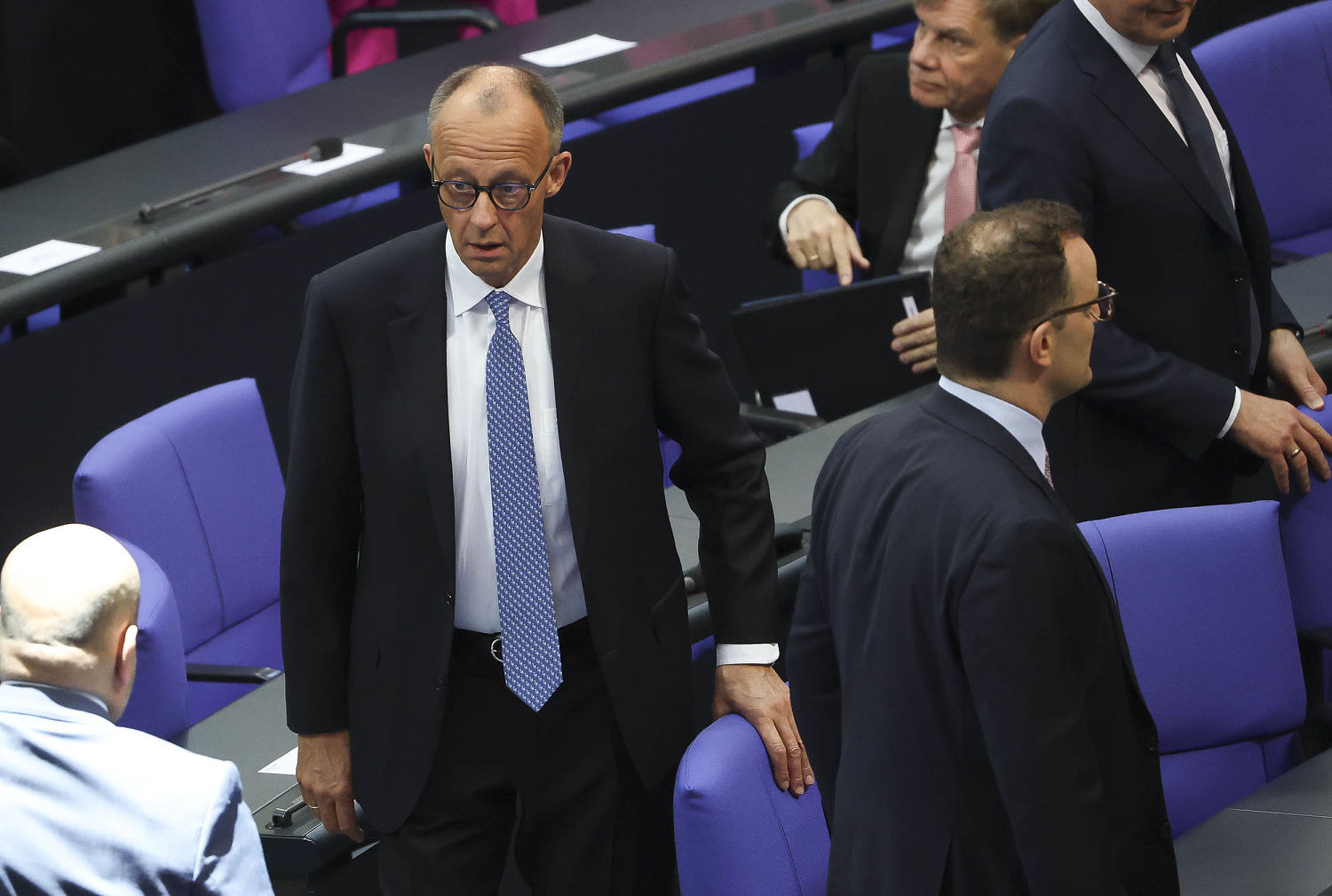Friedrich Merz becomes Germany’s chancellor after historic defeat in first round vote

Hours after he suffered a historic defeat, Friedrich Merz was elected chancellor of Germany on Tuesday.
The leader of the center-right Christian Democratic Union (CDU) had been widely expected to win the vote to become the country’s 10th chancellor since World War II.
No candidate for chancellor in post-war Germany had failed to win on the first ballot, but Merz, 69, was six votes short, winning just 310 of the 316 required to secure a majority in the lower house of parliament, or Bundestag.
After announcing the result, Bundestag President Julia Klöckner implored her colleagues to come to a result. “The whole of Europe, perhaps the whole world, is watching this election,” Spahn said, adding, “I appeal to everyone to be aware of this special responsibility.”
Because the votes were secret ballots, it was not immediately clear who had defected from Merz’s camp, and it might never be known.
He received 325 votes in the second ballot.
Germany has not had a majority government since the collapse of Olaf Scholz’s SPD-led three-way coalition in November.
Merz won the federal election in February with 28.5% of the vote for the CDU/CSU conservatives. On his campaign trail, he promised voters that he would revitalize the German economy, tighten immigration, and boost the country on the world stage at a time when far-right movements are surging amid political uncertainty abroad and a weakened NATO alliance.
The coalition government has promised to revive the economy amid a global trade war sparked by President Donald Trump’s sweeping tariffs and increasing pressure on Europe to boost its defense spending.
The far-right Alternative for Germany (AfD), which looks set to become the largest opposition party in parliament, seized on his failure to attack Merz.
“Merz is damaged, whatever else happens in future,” Bernd Baumann, the party’s parliamentary group leader, said according to Reuters.



